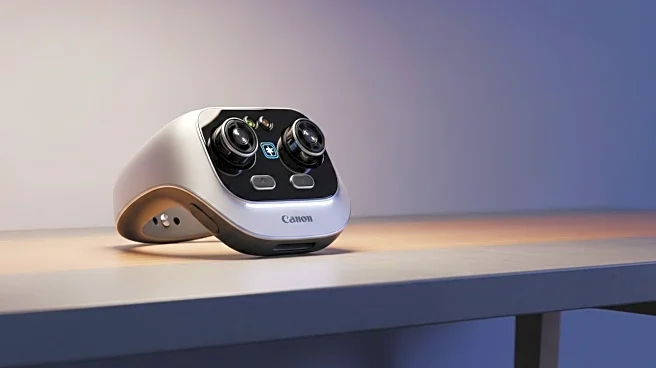What is the story about?
What's Happening?
WHOOP MG, a next-generation wearable device, has been named to TIME's list of the Best Inventions of 2025. The device is designed to enhance personal health and longevity by integrating advanced features such as Healthspan with WHOOP Age, Heart Screener with on-demand ECG, and Blood Pressure Insights. WHOOP has also launched WHOOP Advanced Labs, which combines blood testing with continuous wearable data to provide a comprehensive health overview. The company, founded in 2012 and headquartered in Boston, has raised over $400 million in venture capital and operates in 56 markets worldwide.
Why It's Important?
The recognition of WHOOP MG by TIME highlights the growing importance of wearable technology in personal health management. By providing users with detailed health insights, WHOOP MG aims to extend human healthspan and improve overall well-being. This development reflects a broader trend in healthcare towards personalized and data-driven approaches, potentially reducing healthcare costs and improving patient outcomes. The integration of AI and wearable technology in health monitoring could lead to significant advancements in preventive care and chronic disease management.
What's Next?
WHOOP MG is available for purchase on WHOOP.com, and the company continues to expand its market presence through partnerships with major retailers like Amazon and Best Buy. As wearable technology becomes more prevalent, WHOOP may further innovate its product offerings and expand its user base. The company's focus on integrating blood testing with wearable data could set a new standard in health monitoring, prompting other companies to explore similar technologies.
Beyond the Headlines
The ethical implications of data privacy and security in wearable health technology are significant. As devices like WHOOP MG collect sensitive health data, ensuring user privacy and data protection becomes crucial. Additionally, the accessibility of such technology raises questions about healthcare equity, as not all individuals may have access to these advanced health monitoring tools.















